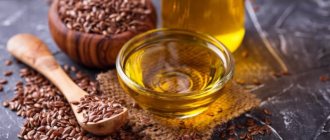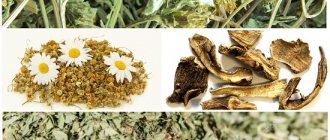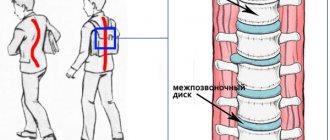This perennial plant with truly extraordinary properties has been known in folk medicine for a long time. In ancient times, people called thyme or creeping thyme “Virgin Herb,” which cures many diseases.
Thyme is equally useful for both adults and children, and methods of its use have been described since time immemorial. The first mentions of thyme can be found in the works of Avicenna. He described in detail what diseases this plant could banish. Today, many are interested in the question of how thyme helps children with coughs and at what age it is suitable.
Peculiarities
As you know, coughs are best dealt with by drugs containing natural substances. They do not harm the body, and this is of current importance when it comes to treating children.
The healing properties of thyme for coughs for children are explained by the fact that the chemical composition of thyme, among other elements, contains essential oil. It contains substances such as thymol, carvacrol, pinene and terpinene, as well as oleanolic, ursolic, thymunic, triterpenic, quinic and caffeic acids. They make thyme an indispensable remedy in the fight against cough, including in very young children.
To some extent, according to reviews, thyme for coughs for children can replace even such an undesirable use of antibiotics. And since there are very, very many supporters of such treatment with the gifts of nature, thyme is only gaining popularity.
Application
The herb is successfully used for all types of cough, nasopharyngeal diseases, pneumonia, whooping cough, bronchial asthma and other diseases. Essential oils help a sore throat, relieve attacks of indomitable coughing, and relieve spasms in the bronchi. In folk medicine, there are recommendations to take creeping thyme even for certain forms of tuberculosis.
Thyme is used in the preparation of medicinal children's syrups for colds and coughs. Its bronchodilator properties lead to intensive sputum production in children and a reduction in inflammatory processes in the upper respiratory tract. When treating cough in children under 3 years of age, thyme should be used only after consultation with your doctor.
Collection rules and places of growth
It is important to choose the right herbal product. Thyme is found in large quantities in warm southern countries, on the European continent and in the Mediterranean region. It grows throughout the Russian Federation, including Crimea, as well as in Ukraine, in the Caucasus mountains and in Central Asian countries.
Its natural habitats are forest edges, steppes and mountain slopes. Among the large number of plant species - creeping thyme, low-leaved thyme, Crimean thyme, flea thyme, Ural thyme, Siberian thyme, Zhiguli thyme - there are none that do not retain healing properties, despite their external differences. However, these properties manifest themselves only with strict adherence to the rules for collecting thyme, otherwise the effectiveness of the plant decreases significantly, or is even completely lost.
During the collection process, in order to properly use the plant for medicinal purposes, you need to pick only the green branches - they become like this during the flowering period of the grass. Very soon the plant will become woody, so it must be collected at this time or, in extreme cases, after heavy rains have fallen over the growing area.
When buying thyme in a pharmacy, you also need to pay attention to the freshness of the plant, as evidenced by its bright green color.
Storage
The stem and flowers of thyme have medicinal value. Thyme cut during the flowering period is dried spread out, turning over from time to time.
For storage, you can use a vessel with water - in this case, the thyme will be stored in the refrigerator for up to two weeks. You can save the herb in dry form, but then the essential oils will evaporate and the healing effect will be significantly reduced.
Finally, another way is to chop and freeze the plant. In this case, all the useful elements of thyme will remain intact.
You can store raw materials for two years, but it is still much safer to update stocks annually.
It is better and more effective to use fresh thyme to treat a child’s cough. Then it retains absolutely all the substances necessary to influence the diseased body. You need to pour thyme with hot water, but not boiling.
Plant based products
Pharmacologists have long known about the healing properties of thyme, and therefore produce various types of medicines based on it, and pediatricians willingly use it in the treatment of children's cough. For example, “Babushkino Lukoshko” cough tea for children is a mixture of thyme with lemon balm and fennel. The plant is sold dry in cardboard packaging of various sizes and in filter bags. In the latter case, it is more convenient to brew them and create different dosages for a sick child.
Classical medicine recommends the drug “Pertussin” for the treatment of symptomatic cough in children. It is made from liquid thyme extract. "Pertussin" actively affects the ciliated epithelium of the child's bronchi and increases the secretion of sputum from them.
Codelac is also popular - it is a good way to combat children's colds.
Thyme-based syrup is prescribed from the age of two for coughs, and the effect of its use is achieved after just a few days of treatment.
What diseases does it treat in children?
The list of diseases that thyme can treat is quite extensive. The following will be especially relevant for children:
- nervous disorders and sleep disorders;
- pathologies of the gastrointestinal tract;
- seasonal colds, flu and ARVI;
- problems of the genitourinary system;
- as an immune-modulating and tonic agent;
- to combat cough and others.
Important! The selection of the recommended dosage and duration of the course is prescribed by the doctor. The patient must strictly follow the prescription received.
The list of diseases and various ailments can be continued almost endlessly. This useful herb makes it possible to quickly deal with wounds on the skin and heal them, helps to cope with alcoholism and even has a negative effect on malignant tumors.
German recipe for whooping cough
German folk medicine used and still uses thyme in the treatment of whooping cough, a terrible disease that brings enormous suffering to children.
A simple decoction recipe, known since the 16th century, includes one teaspoon of honey, four to five drops of thyme essential oil and 200 milliliters of warm water. The finished product can be used in the treatment of children, both for gargling and internally to enhance the coughing process. This should be done at least three to four times a day.
Cough syrup
It has long been prepared at home. A small bunch of flowering thyme is washed well, crushed and dried. Then fill it all with water and put it on low heat until the water boils by half.
For a dry cough, take 5 grams of herb per 100 milliliters of hot water, and for a wet cough, pour about half a liter of water into the middle bunch and boil until half the amount of liquid remains.
Add 250-300 grams of honey to the cooled and strained broth. The result is a fairly thick syrup. For an adult patient, it is recommended to add squeezed garlic juice to it, but children do not need to do this.
The resulting mixture should be left in a closed container in a cool place, and if stored properly, its healing properties will last up to six months.
Give the decoction to children one teaspoon two to four times a day. If you give your child a ready-made mixture purchased at a pharmacy, then just in case you need to carefully look at the dosage of thyme for coughs for children - most often the manufacturer forgets to indicate the dosage of the drug for children.
If the child is less than a year old, then the indicated dose should be reduced ten times, and if from one to four years old - five times. If there are any contraindications, you should consult your doctor.
Medicinal properties of thyme
The plant known as thyme is recognized not only in folk medicine, but also in official medicine. It has a wide list of healing properties, providing anti-inflammatory, antiseptic, antimicrobial and bronchodilator effects. Thyme is used in herbal medicine, cooking and even in home cosmetology. The rich composition of this representative of the world of flora has made it indispensable for everyone who prefers natural substances to pharmacological ones.
Medicines based on thyme are used to neutralize the effects of bee stings, they alleviate the condition of patients with tuberculosis, and also treat coughs of various origins.
Popular recipes
Thyme goes well with other medicinal herbs that complement and enhance its properties. Here are a few more recipes with thyme for coughs for children:
- Pour a tablespoon of the dried plant into 200 ml of boiling water, let it brew for an hour, and then strain through a sieve or cheesecloth. How to drink thyme for a child’s cough - give the infusion 1 dessert spoon three times a day.
- Take the squeezed juice of freshly cut aloe, mix it with honey and add one tablespoon of thyme infusion - all in equal proportions. The resulting medicine can be given to children in small sips when coughing.
- Mix three tablespoons of thyme with a spoonful of mint and the same amount of oregano, pour boiling water over the mixture and leave to steep overnight. The resulting product can be given to a child as tea.
- A freshly prepared decoction (1 tablespoon of raw material per glass of boiling water) should be left in a container and, throwing a thick cloth over the child’s head, sit him down to breathe the steam for about a quarter of an hour, and then put him to bed.
How to brew thyme for cough correctly? Recipes
Thyme, better known as thyme, is an excellent remedy for wet and dry coughs. It also has a restorative and slight sedative effect. Thanks to the antimicrobial effect, thyme medicines help cure colds and flu.
Decoctions with infusions, syrups and teas are prepared from the thyme herb. Also, to increase the effectiveness of drugs, this phytocomponent is combined with other herbs, such as coltsfoot, mint and oregano. Milk and honey are also added to it, which soften the cough. Garlic added to such an herbal medicine increases its bactericidal properties.
Thyme decoction
Ingredients:
- Dried thyme - 1 tablespoon
- water - 200 gr.
How to prepare: Dry, crushed herb is poured with 1 glass of water and placed on low heat. After 15 minutes, the product is removed from the heat, and after cooling, filtered.
How to take: 14 glasses 3-4 times a day.
Thyme infusion on water
Take 1 tablespoon of chopped thyme, pour in 1 glass of boiling water, close the container with the liquid tightly, wrap it up and leave for 2 hours. Then you need to strain it and take 50 grams 3-4 times a day. Children are given half the adult portion.
Alcohol tincture of thyme
Ingredients:
- dry thyme herb - 250 gr.
- vodka - 500 gr.
How to prepare: A 1-liter container needs to be filled one-third full with dry thyme herb. Then 500 grams of vodka is poured in and everything is left to infuse for 2 weeks in a dark place. The liquid is then filtered, after which it is considered ready for consumption.
How to use: take 30 drops three times a day.
This remedy not only improves the removal of phlegm, but also strengthens the immune system; it is indicated for influenza and viral diseases.
We recommend that you read the article about Herbs for boosting immunity: the benefits of natural immunomodulators The immune system of the human body is a kind of “shield” that reflects all attacks and negative influences from the outside….
Thyme syrup
Ingredients:
- dried thyme - 50 grams
- water - 200 gr.
How to cook: add chopped, dry herb to 1 glass of water. It is advisable to prepare the syrup in an enamel container. After boiling, the fire decreases. The product is prepared until its volume is reduced by half. Next, it is filtered, and 125 grams of honey, preferably linden, are added to it when the liquid has cooled to 40 degrees. You also need to add 50 grams of freshly squeezed lemon juice to the syrup. After stirring and infusing for 2 weeks, the syrup or, as it is also called, balm, is ready for use.
How to use: to treat diseases of the lungs, trachea and bronchi, you need to drink 15 grams 4 times a day on an empty stomach. To treat the throat, 3 grams of this drug are dissolved twice a day.
The video below explains how to make thyme cough syrup:
Thyme tea
Thyme herb tea is used internally and as a gargle. To prepare, you need to pour 1 teaspoon of dry, crushed herb with a glass of boiling water. After 15 minutes, the liquid is filtered and taken lukewarm. To reduce inflammation, relieve symptoms of pain and soreness, you need to gargle and rinse your mouth 4 times a day. You can drink tea internally 2-3 times a day.
Thyme with coltsfoot
Pneumonia and whooping cough, bronchitis with asthma and other diseases cause bouts of severe and prolonged coughing. A remedy made from thyme and coltsfoot will help remove it. For 250 grams of hot water, take 1 tablespoon of each herb and infuse for 1 hour. Next, the liquid must be filtered and taken 100 grams three times a day.
Thyme with mint and oregano
Herbal tea based on thyme, mint and oregano will help relieve cough and strengthen the body. You need to take 2 teaspoons of thyme, 1 teaspoon each of oregano and mint, pour everything with 300 grams of boiling water, then leave for 3 hours, strain and take 100 grams three times a day after meals, it is advisable to dilute the product with water.
Thyme with honey and garlic
To prepare this antitussive syrup, you need to pour half a glass of fresh herbs with a glass of cold water and cook over low heat until half the liquid has boiled away. Then, after cooling, the broth is filtered, 80 grams of garlic juice and 300 grams of fresh, liquid or melted honey in a water bath are added to it. The medicine is stored in the refrigerator.
Thyme mixture with milk
You need to pour 2 teaspoons of dry, crushed herbs into 1 glass of milk and keep in a steam bath for 30-40 minutes, then strain. You can add honey. Take half a glass of the product, preferably in small sips. The mixture helps with whooping cough, bronchitis, pneumonia, as well as asthmatic cough.
Thyme inhalation
Thyme inhalations are excellent for relieving coughs and treating inflammation of the respiratory mucosa. To do this, you need to add 3 tablespoons of vegetable raw materials to 750 grams of boiling water, boil over low heat for a quarter of an hour and let cool slightly. Next, when it becomes possible to breathe the steam, you should bend over the container with the product, cover your head with a towel and breathe for a quarter of an hour. If you feel dizzy, take a couple of slow, deep breaths of clean air.
After an inhalation session, you should not go outside for 1, or preferably 2, hours.
Inhalations are prohibited at elevated temperatures. This homemade herbal remedy is not suitable for use in a nebulizer as it may cause pulmonary edema.
Effective tinctures
It will help to overcome a child’s cough and collect thyme with the fruits and flowers of hawthorn and black currant in equal proportions. This infusion of thyme for coughs for children is usually prepared in a thermos and left for 8 hours.
A tincture of thyme with chamomile and plantain flowers will also relieve coughs. All components are mixed in equal parts and left for about an hour. For children under three years old, one teaspoon 15 minutes before meals will be enough, and for older children, one tablespoon.
You can try mixing thyme with wild rosemary. In this case, you should take no more than one teaspoon per tablespoon of wild rosemary thyme, since this poisonous plant can cause serious irritation of the nasopharyngeal mucosa. The mixture should be poured with one glass of water and boiled.
Children can be given half a teaspoon of the drink no more than three times a day.
Finally, for coughs and colds, you can also prepare a drink from a mixture of thyme, valerian root, currant leaves, adding mint, St. John's wort and rose hips - all in equal proportions.
What kind of cough does thyme help with?
The healing herb is used to relieve inflammation, liquefy and remove mucous secretions during bronchitis, laryngitis, pharyngitis, tracheitis, colds, and ARVI. Thymol contained in the plant irritates the receptors and has an expectorant effect. Infusions, decoctions and syrups are effective for wet coughs with difficult sputum discharge. Taking herbal mixtures with thyme in non-productive forms is used in combined treatment, has a bactericidal effect, reduces sore throat, and makes breathing easier.
Dry cough with laryngitis
Prepare a collection of thyme, plantain leaves, and chamomile inflorescences. The components must be taken in equal proportions. Steam a tablespoon of crushed herbs with 250 ml of boiling water, leave for 1 hour. After filtering, drink 15 ml three times a day 15 minutes before meals. The drug stops the inflammatory process, destroys microorganisms in the respiratory tract, reduces the frequency and duration of attacks.
Obstructive bronchitis
In case of illness, decoctions and infusions of thyme are useful, but inhalations are prohibited, they provoke bronchospasm. The mucolytic, anti-inflammatory, expectorant effect of the herb improves the condition, removes viscous sputum, and reduces shortness of breath. Take tea with sage, chamomile, lemon balm, St. John's wort, thyme with the addition of honey 3-4 times a day as part of complex therapy for chronic bronchitis.
Cleansing the lungs when a smoker coughs
To get rid of tar accumulations in the lungs, steam a tablespoon of chopped herb with 250 ml of boiling water. Cover the container and wrap it in a terry towel. After an hour, filter the solution. Mix with liquid honey and aloe juice in a ratio of 3:1:1. Take 15 ml before each meal. The expectorant action helps clear the bronchi and lungs. If you give up the bad habit, the resins are eliminated in 15–18 weeks (naturally - within 12 months).
- How to brew thyme for a cough: the benefits and harms of thyme, preparation at home
Tea
Tea with thyme is worth a special mention. This drink contains a large amount of thymol (essential oil). It is he who very well cleans the upper respiratory tract in children, simultaneously restoring the mucous membrane of the larynx, healing the resulting microtraumas during a dry cough. So in cases where a child is overcome by seizures, this tea will help.
Many people are interested in the age at which children can take thyme for cough. In the absence of contraindications and strict adherence to all the rules for preparing a medicinal drink, it is recommended to try giving it to a one-year-old baby. An unsaturated decoction of thyme for coughs is sometimes recommended for children even at eight months of age. From the age of three, tea with thyme can be given to a child without fear of consequences.
Not everyone knows how to brew thyme for a child’s cough. It's easy to prepare the product. You just need to brew a few branches of the plant in boiling water. To make the drink more pleasant to drink, it is better to add honey to taste.
Thyme for coughs for children, features of use
Unfortunately, the immaturity of the children's immune system causes children to get sick much more often than adults. At the same time, not all “adult” medications are indicated for them. However, thyme is an excellent and very effective antitussive remedy, which simultaneously enhances the body’s protective properties.
The only contraindication for internal use, in this case, would be age less than 3 years.
Of course, if allergies and signs of intolerance to this plant appear, you will have to stop taking it, but this happens extremely rarely. Since thyme decoctions have a mild calming effect, they are good to give before bed.
This will help your baby not only cough less, but also sleep better. Use for dry cough
Ingredients:
- Dried thyme - 5 gr.
- water - 200g.
How to prepare: pour half a glass of boiling water over herbal raw materials, leave in a closed container, then strain.
How to use: give 1 tablespoon 4-5 times a day.
If the cough is wet, prepare a simple syrup.
Ingredients:
- bunch of dry grass, 100-150 gr.
- drinking water - 500 gr.
How to prepare: a bunch of herbs is filled with 500 grams of water and placed on low heat. You need to boil until half the water has boiled away. After this, the product is removed from the heat, filtered, and cooled to a temperature of 40-45 degrees. Then 250 grams of honey is added to it. The result is a viscous, thick liquid that can be stored in the refrigerator for up to six months.
How to use: medicine for children with a wet cough, 1 teaspoon 4 times a day, along with a lukewarm, unsweetened drink. Adults use it in the same way, but add garlic to the syrup.
Contraindications
Thyme has many advantages, but there are also many contraindications. The main thing is to strictly adhere to the dosage, especially for young children. In addition, there are a number of diseases for which it is better not to give thyme to children at all:
- arrhythmia;
- cardiosclerosis;
- thyroid diseases;
- liver and kidney diseases;
- increased stomach acidity;
- cerebral vascular pathology.
Here we should also add a tendency to constipation and individual intolerance to drugs, tinctures and decoctions based on thyme.
Can thyme be given to children?
The list of contraindications to thyme-based therapeutic agents includes children under 3 years of age.
This is a generally accepted prohibition, which is designed to ensure that children can be harmed by taking medications and decoctions with thyme. However, most doctors note that this is reinsurance; in fact, a weak decoction of thyme can be given even to children up to the first year of life. It is important to consider some rules:
- Children under one year old can be given a weak infusion of thyme during a cold, ARVI or flu;
- From 1 to 3 years old, children can be given a few tablespoons of decoction diluted with honey. It is possible to add other beneficial herbs and flowers;
- From 3 years of age, you can safely give the drug to children and expect a therapeutic effect, however, a preliminary consultation with a doctor is required.
Important! Early start of taking thyme decoctions and infusions can be safe only in the absence of allergic reactions or individual intolerance to the natural remedy.
Thus, thyme can be used even in the treatment of infants. The main thing is to follow all safety measures and consult with the supervising doctor. Prolonged and uncontrolled independent treatment is not allowed. This can lead to serious disruptions to the body's functioning.
Recommendations
Experts, despite the availability of thyme, still advise not to neglect the recommendations of your doctor. And this is especially true for the treatment of children under three years of age.
The wide range of possibilities for combining thyme with other medicinal herbs can cause the opposite effect in a child due to intolerance to one or another type of plant. You should not take thyme for more than two weeks, since the substances contained in it, with prolonged exposure to the mucous membranes of the nasopharynx, esophagus and stomach, can cause undesirable consequences.
Another danger is that the medicinal plant has a depressing effect on the thyroid gland, causing its dysfunction.











